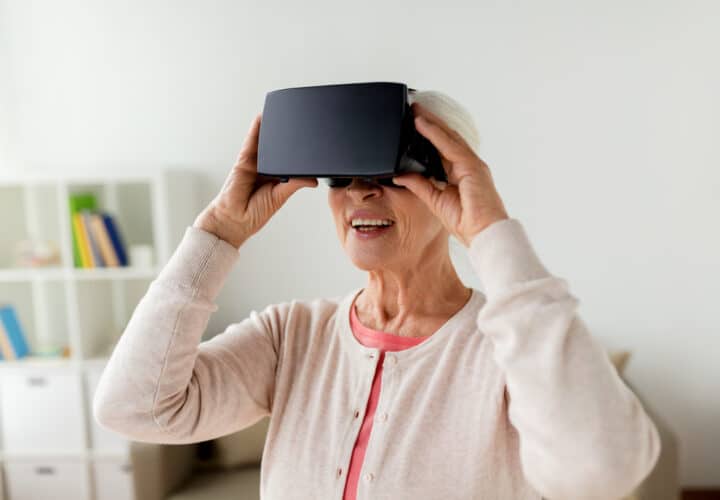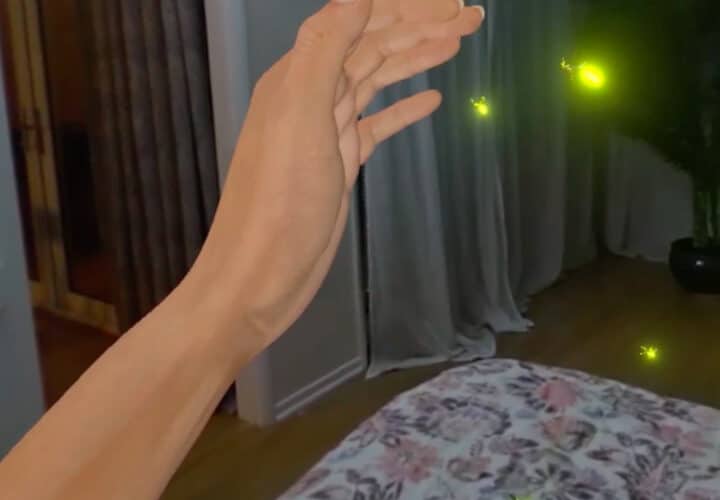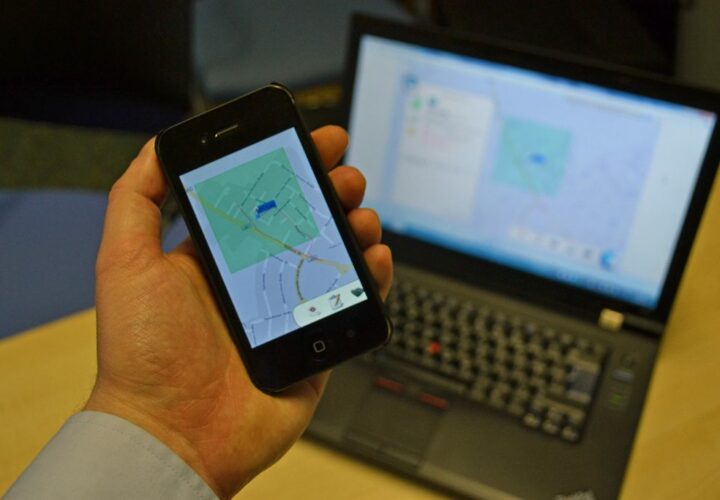Many people think of virtual and augmented reality as popular forms of entertainment — but these technologies are becoming more central to healthcare, including neurological care.
Virtual and augmented reality (VR and AR) uses computer-generated environments, viewed through a pair of high-tech goggles, to help individuals face and overcome their fears and anxieties, such as acrophobia or fear of heights, treating different mental health disorders, including PTSD and body dysmorphia. This therapeutic tech holds big potential for those who suffer from Alzheimer’s and dementia.
“VR can clearly have positive benefits for patients with dementia, their families, and caregivers,” Dr. Jim Ang, PhD told Being Patient, in discussion about a VR and dementia study on which he was a lead author. “It provides a richer and more satisfying quality of life than is otherwise available, with many positive outcomes.”
Companies like MindMaze, Oxford VR, Limbix and Psious make use of VR in neurological therapy in settings from hospitals to individuals at home. They differ in the way they include their target audience and the types and levels of severity of the neurological diseases or disorders they target, helping people with skills including memory recall and navigation.
Ang’s research, out of Kent, UK, found evidence in a small study that exposing people with dementia to VR environments also helped reduce aggression and improve their interactions with caregivers.
A review, published this April in the Journal of Alzheimer’s Disease, assessed existing studies on the benefits of VR for people living with Alzheimer’s, especially when coupled with the use of contemporary neurodegeneration models and screening methods, finding that the tech is emerging as a viable method not only of therapy but of diagnosis.
Virtual Reality for Caregivers, Too
While Psious focuses on anxiety disorders and Oxford VR on psychosis, Embodied Labs is dedicated to creating dementia-specific simulations as an educational tool and for building empathy. They’ve created a platform that allows caregivers, family members and medical professionals to experience dementia first hand.
Embodied’s program is called The Dima Lab, in which users experience different types of dementia-related conditions through protagonists with diverse backgrounds — for example, that of Lewy Body dementia through the eyes of a Lebanese-American Muslim woman named Dima, who also has symptoms of Parkinson’s.
Jaime Hannans, associate professor of nursing at California State University-Channel Islands, told Being Patient that Embodied Labs’ Eden program is one example of a VR therapy that serves not only the person living with a neurological disorder but the care provider, helping care home staff and caregivers see through their patients’ eyes, so they can provide more empathic healthcare.
“You start to think deeply about how negative experiences can have an impact on older adults’ willingness to share information about themselves in healthcare,” Hannans said. “We have become much more careful about terminology and creating a safe space in the healthcare setting so they can get the care that they need.”
Watch: Being Patient BrainHacks, VR Therapy
Marian Williams is a summer intern with Being Patient’s internship program. To learn about our internship opportunities, email us at info@beingpatient.com.






